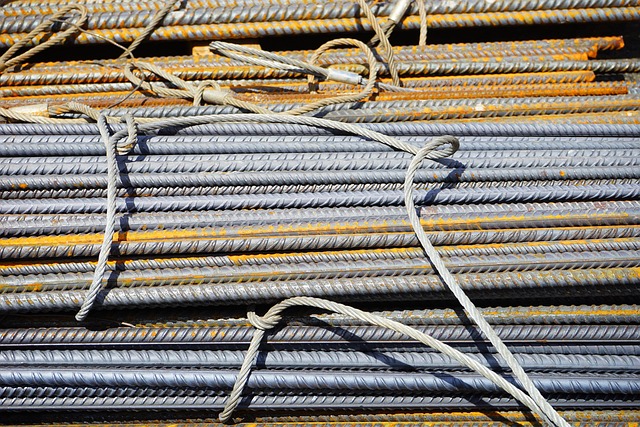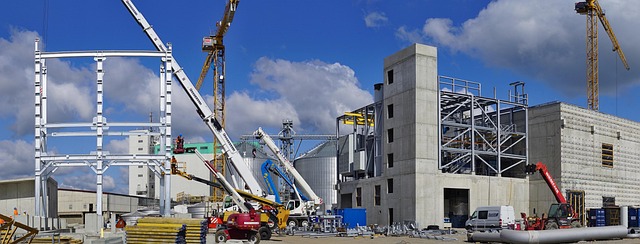Construction lending in Colorado is a vital sector supporting the state's booming real estate market. Lenders offer tailored financing options for developers, evaluating projects based on location, plans, and financial health. The process involves detailed documentation, careful assessment, and structured loan agreements. Investors face opportunities but also risks, requiring robust risk management to navigate market challenges and ensure profitable returns in this competitive construction lending Colorado landscape.
Construction lending in Colorado is a robust sector, offering diverse financing options for real estate projects. This article delves into the intricacies of understanding construction loans, exploring various types available in the state and the factors influencing approval. We’ll break down key terms, the application process, and the risks and benefits of investing in these loans. By familiarizing yourself with Colorado’s construction lending landscape, you can make informed decisions for your real estate ventures.
- Understanding Construction Lending in Colorado
- Types of Real Estate Financing Options
- Factors Affecting Construction Loan Approval
- Key Terms and Conditions of Construction Loans
- The Application Process for Construction Lending
- Risks and Benefits of Investing in Real Estate Construction Loans
Understanding Construction Lending in Colorado

In the dynamic landscape of real estate financing, construction lending plays a pivotal role in bringing architectural visions to life across Colorado. This specialized financing option is tailored to support developers and builders during the intricate process of constructing new buildings, from initial ground breaking to final inspections. Construction lending in Colorado involves funding mechanisms designed to cover the costs associated with construction projects, including materials, labor, permits, and professional services.
Understanding construction lending is crucial for navigating the unique challenges inherent in commercial and residential development within the state. Lenders in Colorado carefully assess project feasibility, considering factors such as market demand, proposed design, timelines, and the experience of the development team to mitigate risks. With a robust economy and booming industries, Colorado presents attractive opportunities for construction lending, fostering growth and innovation across its diverse real estate sectors.
Types of Real Estate Financing Options

In Colorado, individuals and businesses looking to enter the real estate market have a variety of financing options available. Construction lending is a specialized sector within the broader real estate finance landscape, focusing on providing funds for residential or commercial building projects. These loans cater to different stages of development, from initial construction to completion, offering flexible terms and rates tailored to developers’ needs.
When considering construction lending Colorado has several types of financing to offer. Traditional bank loans remain a popular choice due to their competitive interest rates and established repayment structures. Additionally, alternative lenders have entered the market, providing faster approval times and more adaptable loan programs, especially beneficial for smaller projects or those with unique requirements. Each option comes with its own set of benefits and considerations, allowing prospective property developers to select the most suitable financing method based on project scope, timing, and personal financial profiles.
Factors Affecting Construction Loan Approval

When it comes to construction lending Colorado, several factors play a crucial role in determining loan approval for your building project. Lenders carefully evaluate each application, considering aspects like the property’s location, the proposed construction plans, and the borrower’s financial health. The specific guidelines may vary across lenders, but generally, they assess the potential risks associated with the project.
Key considerations include the market value of the land, the estimated cost of construction, and the lender’s experience with similar projects in the area. A solid loan approval process involves comprehensive documentation, including detailed plans, permits, and financial statements. Borrowers should prepare to demonstrate their ability to repay the loan, often through a thorough review of their credit history and current income.
Key Terms and Conditions of Construction Loans

In the vibrant real estate market of Colorado, construction loans play a crucial role in bringing building projects to life. These specialized financing options are designed to support developers and builders during the initial phases of construction. Key terms and conditions of construction loans in Colorado include clear timelines for project completion and regular progress updates to ensure transparency. Lenders typically require detailed plans, permits, and budget breakdowns to assess project feasibility and mitigate risks.
Interest rates, repayment structures, and collateral requirements are other essential aspects that vary among lenders. In Colorado, construction lending is regulated to protect both the financiers and the borrowers, ensuring fair practices. Borrowers should carefully review loan agreements, understanding the terms related to draw schedules, disbursement processes, and any penalties for delays or budget overruns. Understanding these conditions is vital for a successful construction project in the competitive Colorado real estate landscape.
The Application Process for Construction Lending

The application process for construction lending in Colorado involves several key steps, designed to assess both the project’s viability and the borrower’s financial health. It begins with gathering comprehensive documentation, including detailed plans and specifications for the build, along with financial statements and credit reports for the borrower and any guarantors. This initial submission sets the foundation for a thorough evaluation by lenders.
Lenders in Colorado carefully scrutinize these documents to ensure the project aligns with their lending criteria. They assess factors such as market demand, construction costs, potential resale value, and the experience of the builder. Additionally, they evaluate the borrower’s ability to repay the loan, considering their existing debt obligations and projected cash flow. This meticulous process is crucial for both parties, ensuring that construction projects in Colorado are funded responsibly while safeguarding lenders’ interests.
Risks and Benefits of Investing in Real Estate Construction Loans

Investing in real estate construction loans comes with its unique set of risks and benefits, especially for those considering ventures in Colorado’s competitive market. One significant advantage is the potential for substantial returns; construction lending allows investors to capitalize on the ever-growing demand for housing in rapidly developing areas. This opportunity is particularly attractive in Colorado, where the state’s thriving economy and population growth drive real estate values upward.
However, risks are inherent in any investment, and construction loans are no exception. Delays in construction or budget overruns can significantly impact profitability. Additionally, market fluctuations can affect property values during the construction period. Investors must conduct thorough due diligence, ensuring they have robust risk management strategies in place. Colorado’s unpredictable weather patterns and environmental factors further complicate matters, necessitating careful planning and potentially higher insurance costs for construction projects.
Construction lending in Colorado offers a unique opportunity for investors to navigate the real estate market. By understanding the various financing options, key terms, and application process, individuals can make informed decisions regarding investment risks and benefits. These loans play a crucial role in bringing architectural designs to life, contributing to the vibrant landscape of Colorado’s construction industry. When approached strategically, construction lending presents a promising avenue for those seeking to invest in real estate development.
